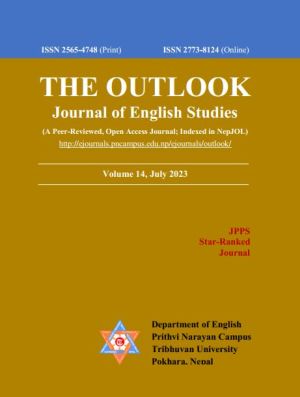The Prose of Otherness and Humanity: Representing Partition Violence in Sahni’s “The Train Has Reached Amritsar” and Manto’s “Mozel”
DOI:
https://doi.org/10.3126/ojes.v14i1.56657Keywords:
Trauma, partition violence, otherness, humanity, memory, metairony, historiographyAbstract
Representation of partition violence of 1947 in the South Asian context has gained a renewed interest of scholars in line of trauma theory in the recent years. As such, partition fiction has contributed to resolving the trauma of the communal cataclysm by capturing the specificity of violence as the fragments of memory. However, writers use different strategies and prose styles to depict the violence. This paper aims to examine the depiction of cultural trauma and the prose of othering in “The Train Has Reached Amritsar” by Bhisam Sahni and, contrastingly, the prose of humanity in “Mozel” by Saadat Ḥasan Manto. It analyzes the stories in light of the cultural trauma theory of Jeffrey C. Alexander and Ron Eyerman, Avishai Margalit’s concept of memory and Gynendra Pandey’s new historiography of revisionist mode. To interpret the texts, the study uses the method of textual analysis. It also brings in the critics’ evaluation of the texts where necessary. The findings of the study emphasize that Sahani’s prose attempts to resolve the problem of trauma by appealing to identity politics grounded on ethical memory and Manto’s narrative, in contrast, employs a formal technique of metairony to evoke the readers’ moral sense and humanity at large.
Downloads
Downloads
Published
How to Cite
Issue
Section
License

This work is licensed under a Creative Commons Attribution-NonCommercial 4.0 International License.
This license enables reusers to distribute, remix, adapt, and build upon the material in any medium or format for noncommercial purposes only, and only so long as attribution is given to the creator.

